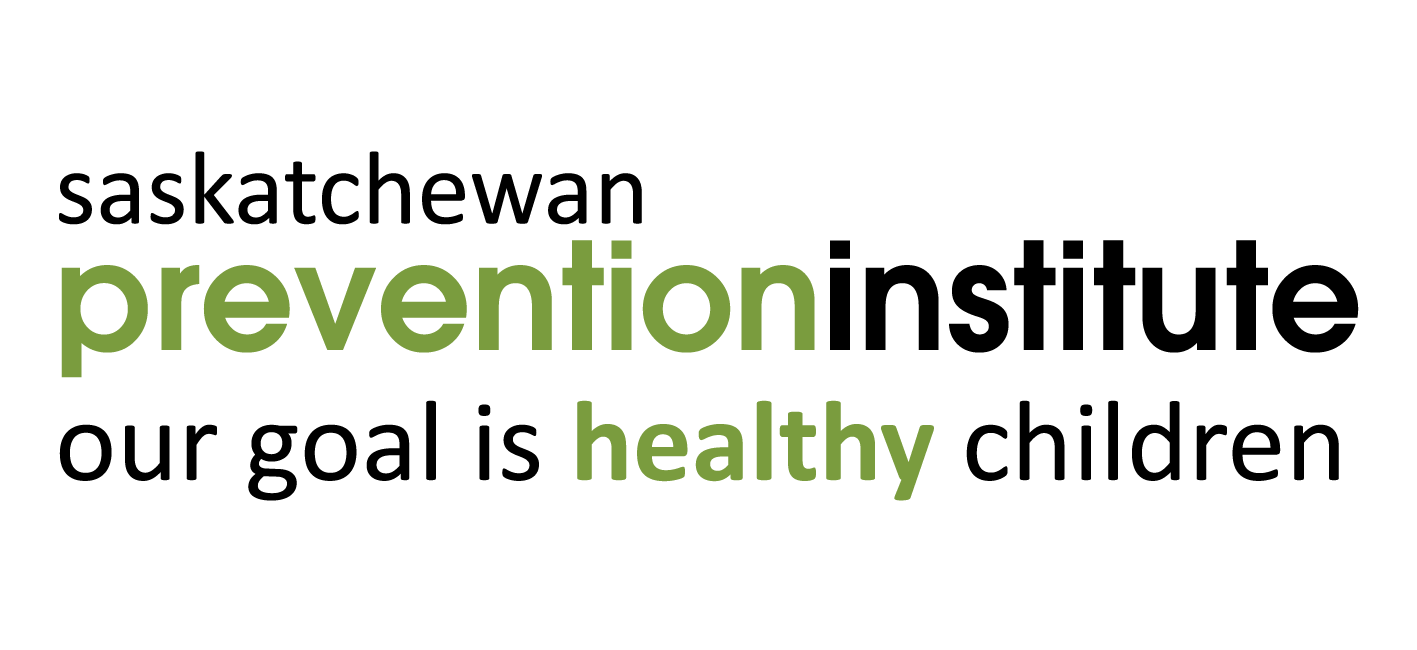- Display 15 Products per page
-
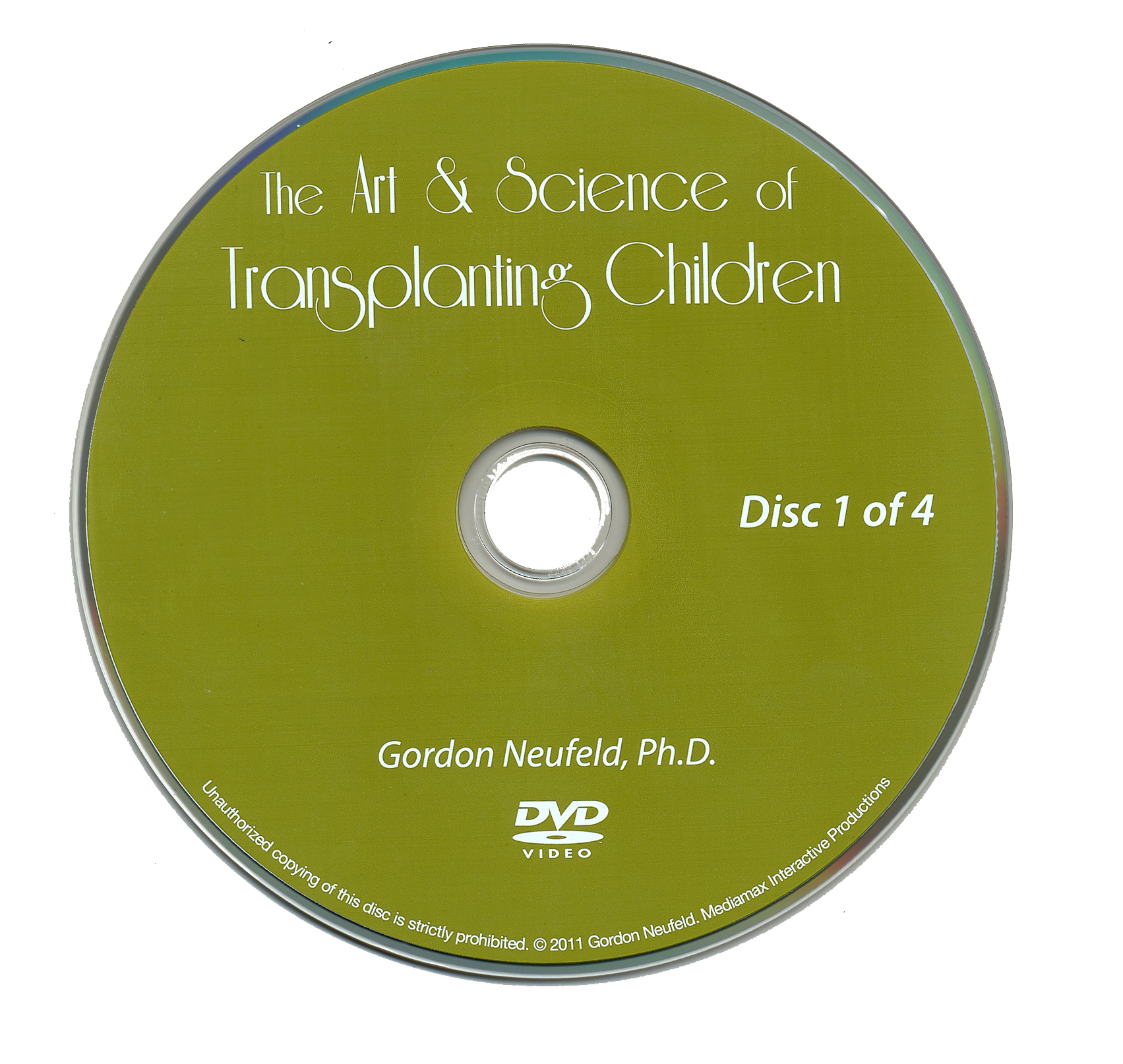
The Art and Science of Transplanting Children
Video, 2011
This course explores the attachment needs of children and how these can become disrupted when a child is moved into a new environment. Each presentation is designed so that the material builds on the information learned in previous presentations. This course is suitable for anyone working with children or who is responsible for making policy decisions regarding children who are placed into care. This can be used for individual professional development or could be used as a series of one-hour staff development sessions. Foster and adoptive parents will also benefit from this information.
SKU: 8-V-808 -
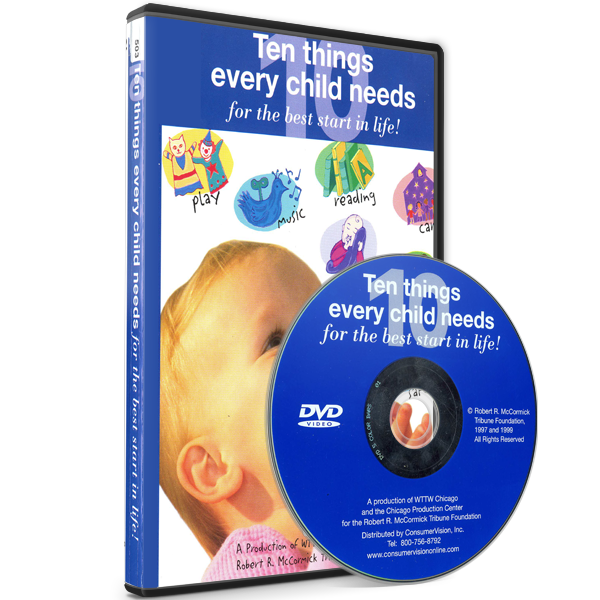
Ten Things Every Child Needs
Video, 1999
Can a child’s IQ be improved during the first years of life? Researchers say yes, if the child receives ten simple things shown to help children’s brains develop.
Ten Things Every Child Needs explains how our earliest interactions influence a child’s brain development. Hosted by popular television personality Tim Reid, Ten Things Every Child Needs is an invaluable guide that parents and caregivers can follow to give a child his or her best start in life.
SKU: 5-V-503 -
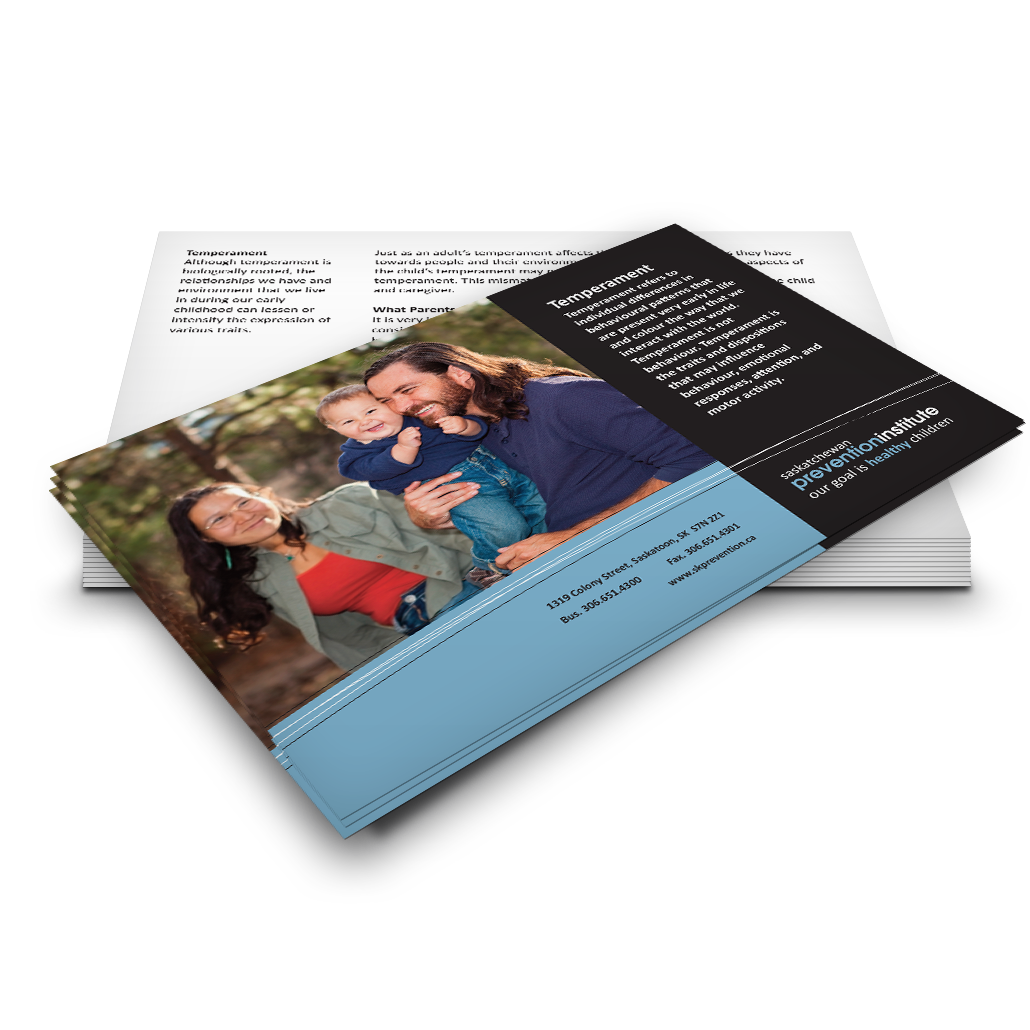
Temperament
Information Card, 2015
This information card is about temperament, the inherent and unique traits that influence how we interact with the world. Caregivers will be provided with information on why it is important to understand their children’s temperaments and how it affects behaviour.
SKU: 8-810 -
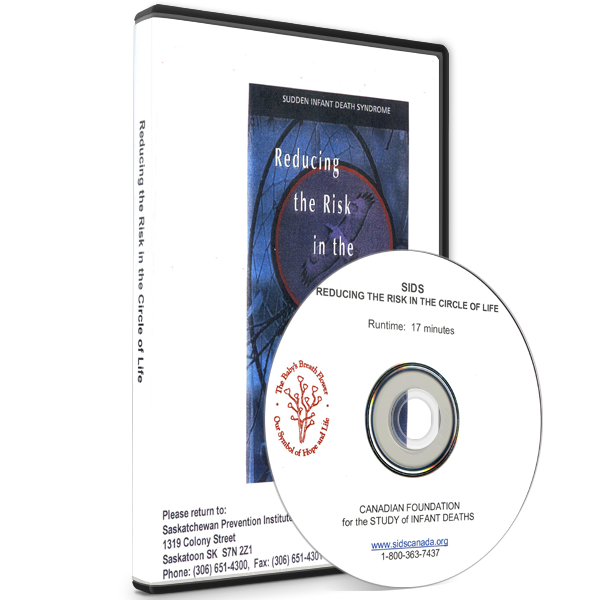
Sudden Infant Death Syndrome: Reducing the Risk in the Circle of Life
Video, 2000
Graham Greene narrates this video that describes strategies for reducing the occurrence of SIDS. Discussion of SIDS and the risk reduction strategies involve key interviews with Aboriginal parents, health professionals, and an Elder. The video is accompanied by a study guide, which can be used to lead group discussion. Audience: expectant parents, caregivers, health professionals.
Audience: Expectant parents, caregivers, and health professionals.SKU: 2-V-204 -
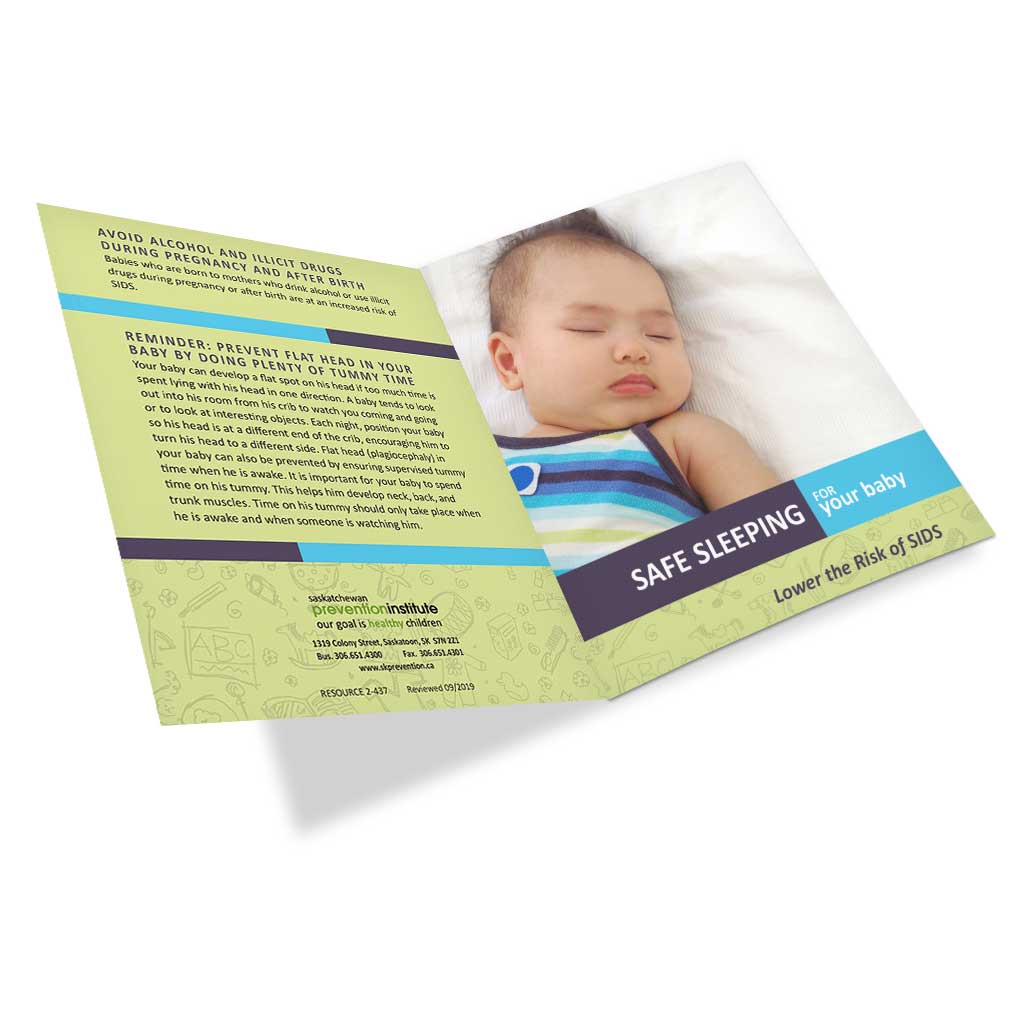
Safe Sleep for Your Baby: Lower the Risk of SIDS
Brochure, Revised 2019
This brochure outlines safe sleeping habits for babies to help reduce the risk of Sudden Infant Death Syndrome (SIDS). It also provides information on breastfeeding and the importance of supervised “tummy time”.
SKU: 2-437 -

Safe Sleep Evidence Summary
Report, 2017
This evidence summary summarizes evidence based guidelines on safe sleep and is intended for use by policy makers, healthcare providers, and service providers.
SKU: 2-438 -
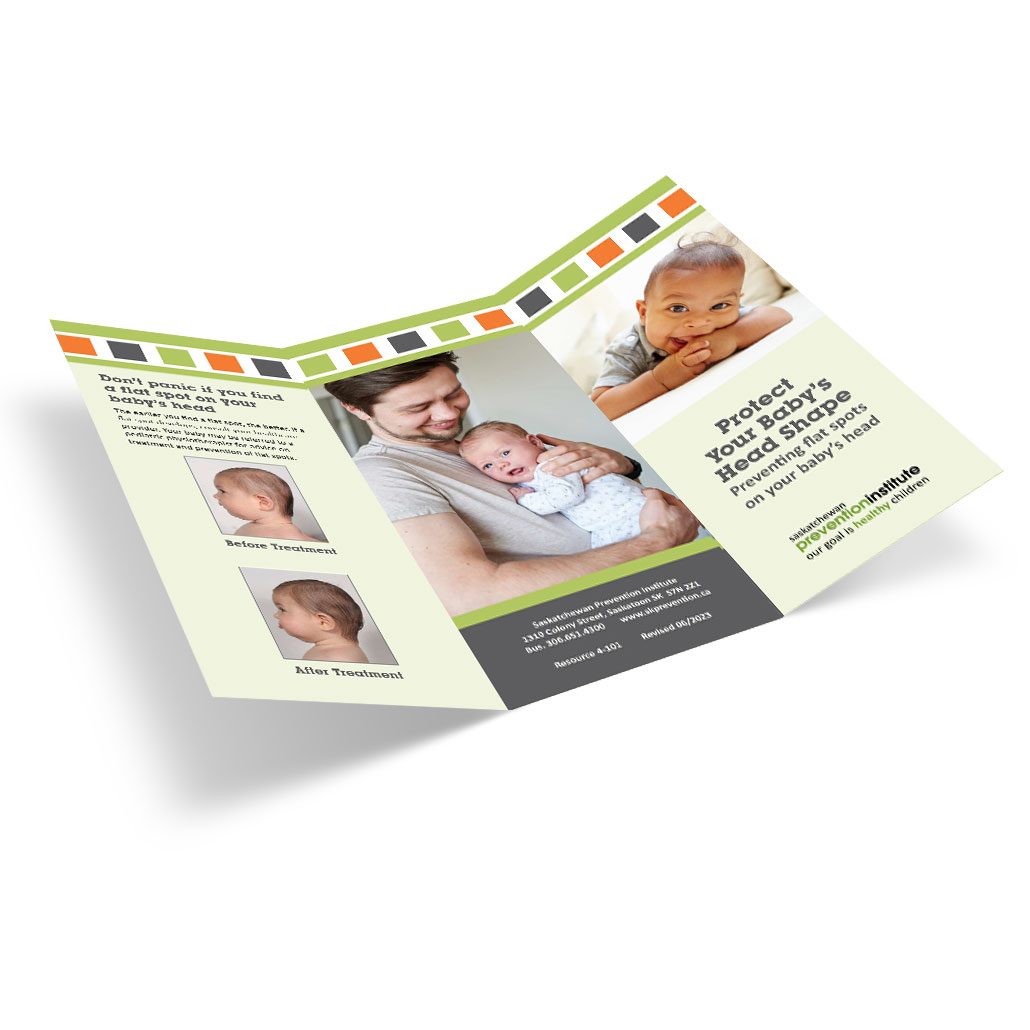
Protect Your Baby’s Head Shape: Preventing Flat Spots on Your Baby’s Head
Brochure, Revised 2023
This brochure provides parents and caregivers with information on positional plagiocephaly, or “flat head”. Information includes how to prevent flat spots and what to do if a flat spot is found on baby’s head.
SKU: 4-101 -
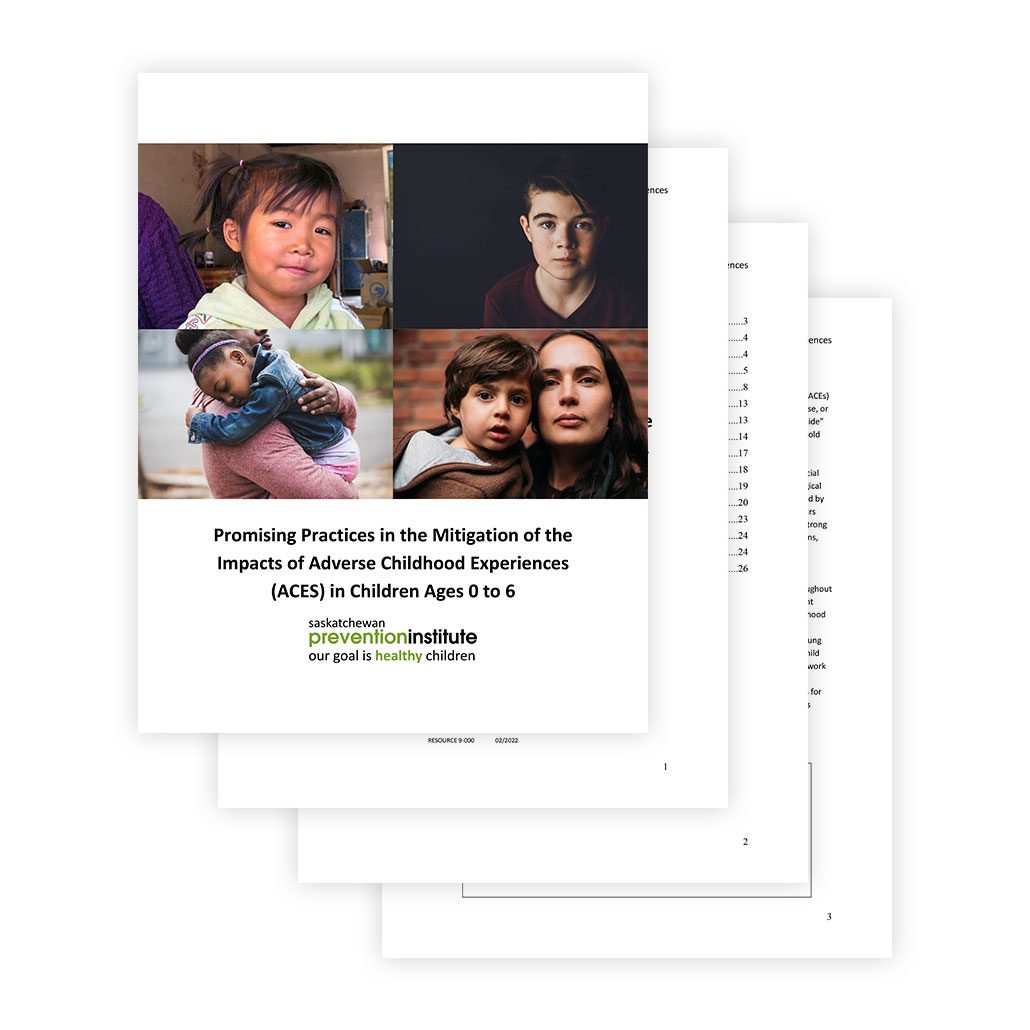
Promising Practices in the Mitigation of the Impacts of Adverse Childhood Experiences (ACES) in Children Ages 0 to 6
Report, 2022
Adverse childhood experiences (ACEs) are childhood events that cause harm or distress and, as a result, disrupt the child’s health and development. The purpose of this report is to define ACEs and their impact on development, health, and well-being; describe how ACEs are identified in children ages 0 to 6; and investigate evidence-based practices being used with children ages 0 to 6 and parent/caregiver-child dyads to mitigate (make less severe or harmful) the impacts of ACEs in childhood and beyond.
“In November 2022 an Executive Summary was added to the report”.
SKU: 9-000 -
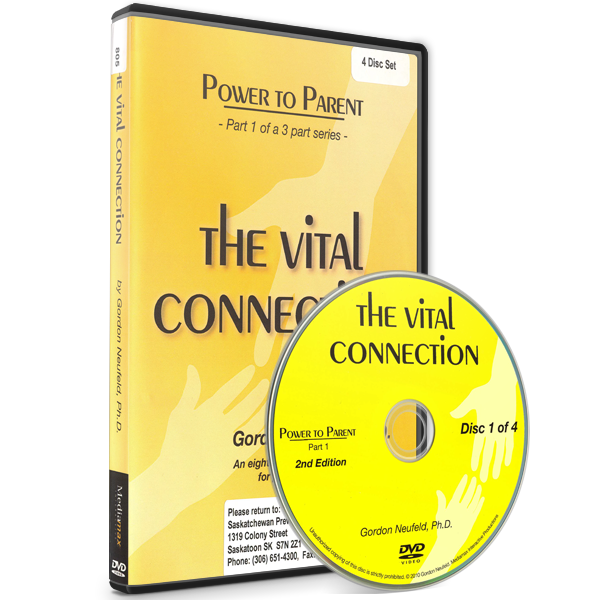
Power to Parent: The Vital Connection
Video, 2012
This is part 1 of a 3-part series. In this DVD, Dr. Neufeld examines the importance of the attachment relationship that children have with their caregivers and its continuance into adolescence. He discusses the difficulties that can occur if attachments to peers begin to compete with the attachment children have with their caregiver(s).
SKU: 8-V-805 -
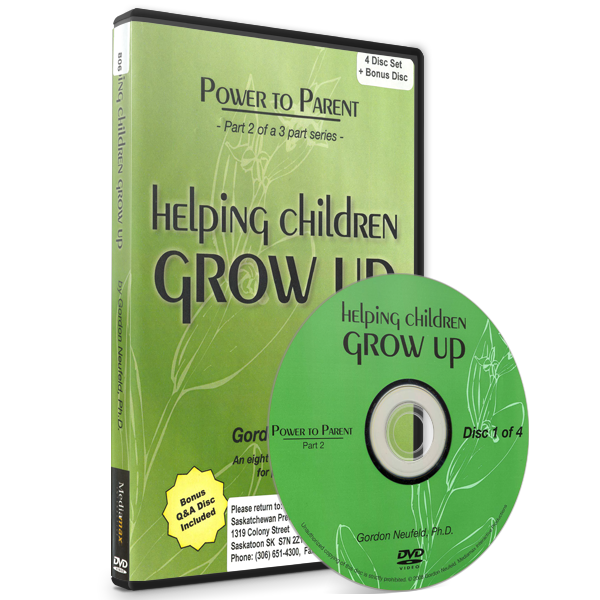
Power to Parent: Helping Children Grow Up
Video, 2008
This is part 2 of a 3-part series. This course is recommended for professional development purposes and should be used in a consecutive fashion as each session builds on previous information. As suggested by the title, the DVD speaks to the topic of helping children grow up. Sessions are broken down as follows:
- Parents and the miracle of maturation
- How to give children the rest they need to grow
- Keys to independence, individuality, and responsibility
- How to help children become their own persons
- Keys to resilience, resourcefulness, and recovery
- How to help children accept limits and adapt to circumstances
- Keys to emotional and social maturity
- Helping children become considerate and find their self-control
SKU: 8-V-806 -

Power to Parent: Common Challenges
Video, 2011
Dr. Neufeld discusses ways to address challenging behaviour in children while maintaining attachment relationships. The eight sessions are as follows:
- Thinking developmentally when facing challenges
- Recognizing the signs of trouble
- Living with a sensitive child
- Cultivating resilience in a child
- Leading an alpha child
- Disciplining a stuck child
- Putting the developmental approach into practice
SKU: 8-V-807 -
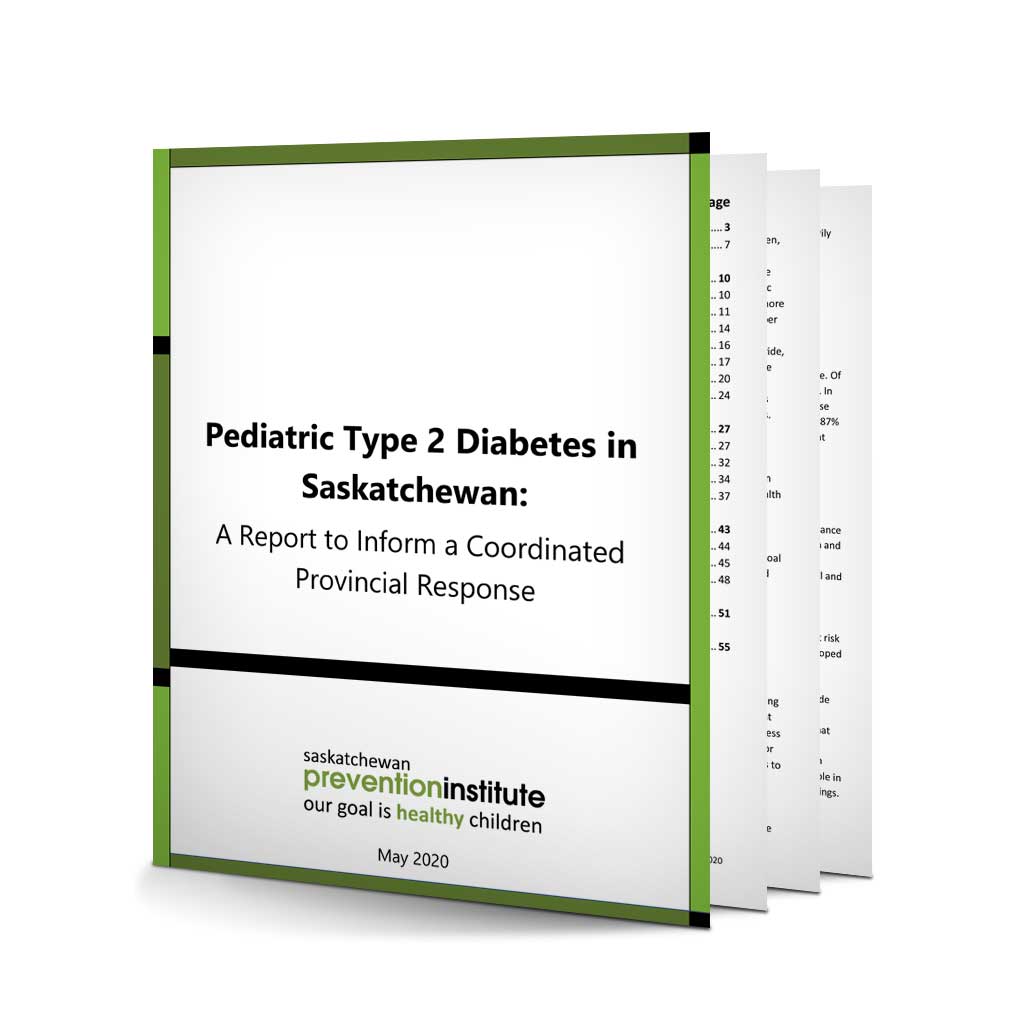
Pediatric Type 2 Diabetes in Saskatchewan
Report, 2020
Pediatric type 2 diabetes (T2D) is a rising issue in Canada. Research shows an increasing prevalence of T2D in communities around the world, including in Canada. In Canada, some of the highest incidence rates are found in the First Nations pediatric population in the Prairie provinces. The Saskatchewan Prevention Institute partnered with Dr. Mark Inman (Pediatric Endocrinologist, Saskatchewan Health Authority) to bring together current evidence and data relevant to Saskatchewan and increase the understanding of the strengths, gaps, and needs related to pediatric T2D within Saskatchewan.
The partnership resulted in the development of this background report, based on a literature review, needs assessment survey, and environmental scan, which will inform future work regarding pediatric T2D in Saskatchewan. The report will be used first to inform the development of relevant resources for education and training for healthcare providers, and second, to develop appropriate education for patients and families, within the Saskatchewan context.
SKU: 2-001 -
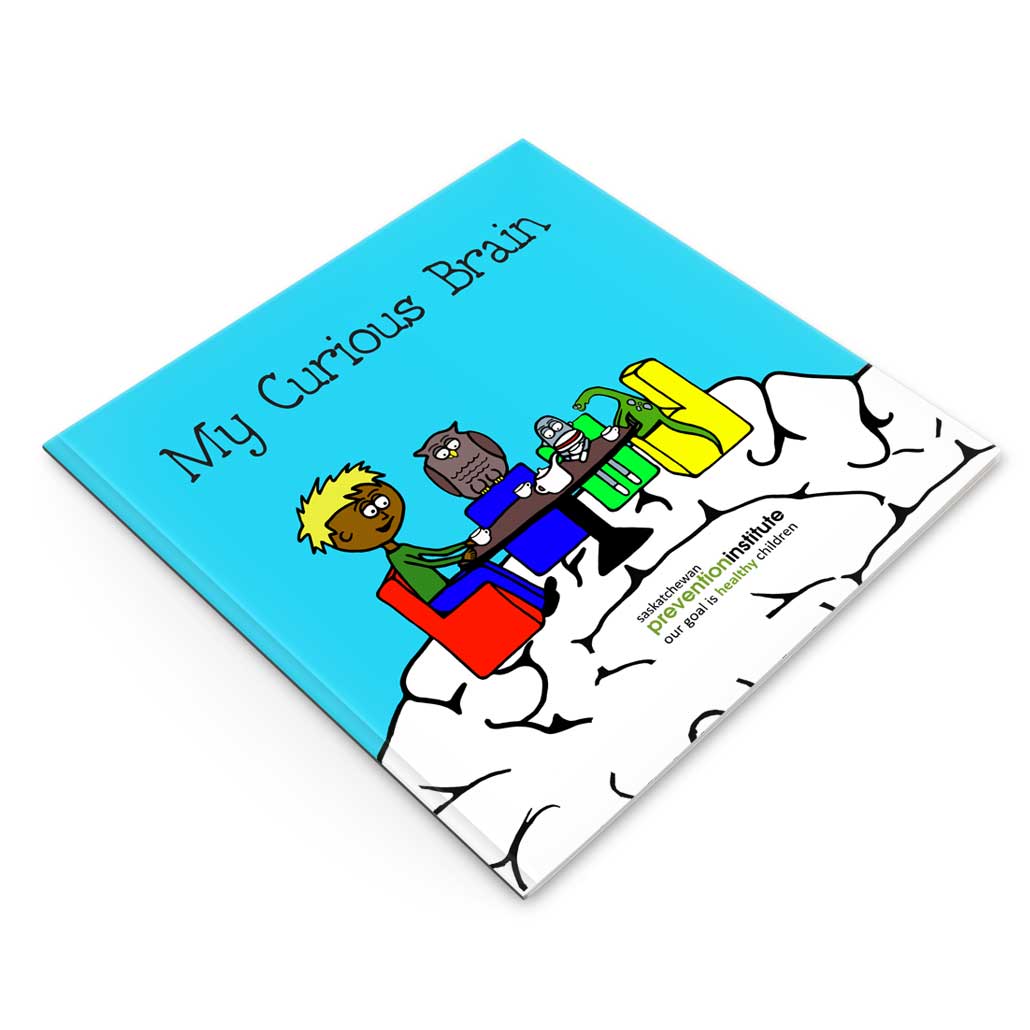
My Curious Brain
Booklet, 2019
My Curious Brain is a fun, interactive, and educational book for parents and caregivers to teach their kids about how the brain works. When parents and caregivers have a greater understanding of how the brain works, they will better understand how to support their child and promote healthy brain development. With a greater awareness of how the brain works and with supportive caregivers, children can develop self-regulation skills and strategies to help them effectively deal with stress.
SKU: 5-505 -
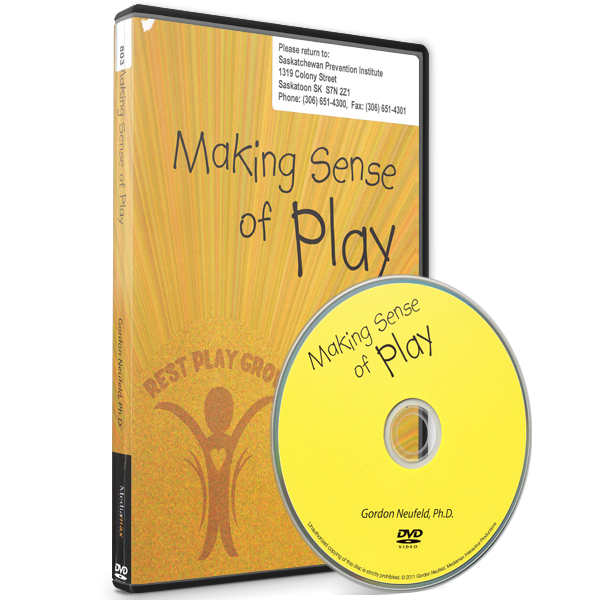
Making Sense of Play
Video, 2011
In this two-hour seminar, Dr. Gordon Neufeld explores what play is, the benefits of play, and what is needed for children to play. Dr. Neufeld explains that play is not an option; it is a developmental requirement. Through various examples, he explores the three basic tenants of play: 1) Play is not work, 2) Play is expressive and exploratory, and 3) Play is “not for real”.
SKU: 8-V-803 -
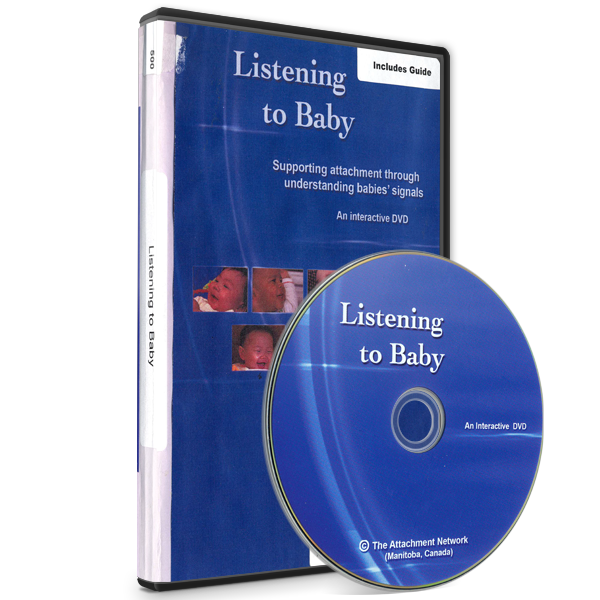
Listening to Baby
Video, 2007
Listening to Baby is an interactive DVD about the importance of supporting attachment by noticing, understanding, and responding with sensitivity to babies’ cues. This DVD is a rich and multifaceted teaching tool developed primarily for a parent audience but with potential to be used in education and other settings. Messages are told mostly in the voices of parents and illustrated by beautiful images of their babies, from 2 weeks to 16 months of age.
SKU: 5-V-500
